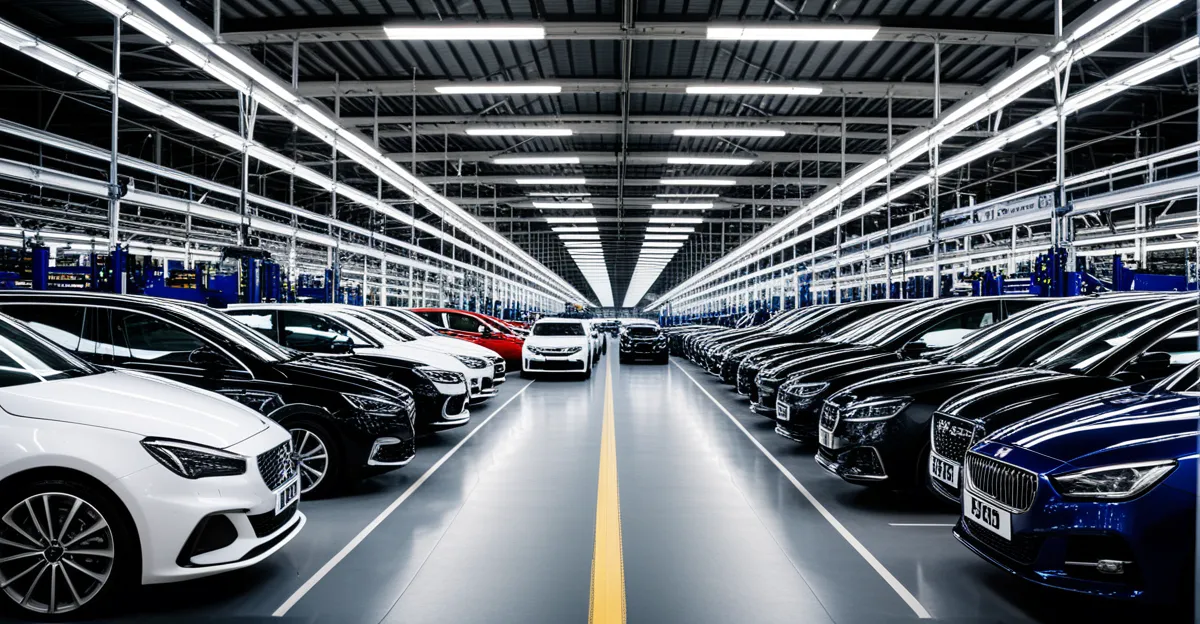Immediate supply chain disruptions since Brexit
Brexit automotive supply chain disruptions have been particularly acute in the initial months following the UK’s departure from the EU. One of the most pressing challenges was the sudden shortage of crucial parts, which severely affected UK car industry post-Brexit production lines. Manufacturers faced delays due to new customs procedures, causing bottlenecks at ports and longer lead times for components sourced from Europe.
For instance, UK automotive plants reported shortages of semiconductor chips and other essential components that halted assembly lines temporarily. These disruptions arose because of added checks and changes in logistics routes, fundamentally altering the supply shortages landscape. Companies had to quickly reassess their inventory practices, shifting toward holding larger stock volumes to counteract uncertain delivery schedules.
Also read : What are the strategies for reducing emissions in UK automotive production?
Many manufacturers adopted more robust inventory management strategies by increasing safety stock and diversifying suppliers, aiming to mitigate the risk of future supply chain interruptions. This shift, however, came with increased operational costs and required a reevaluation of contracts and supplier relationships. By focusing on these adaptations, UK carmakers sought to restore a degree of stability amid Brexit’s upheaval in the automotive supply chain.
New trade tariffs and customs procedures
Brexit brought about significant changes in trade tariffs UK automotive sectors, with the introduction of tariffs and customs checks that directly impacted the UK car industry post-Brexit. These new tariffs created a financial burden by increasing the cost of importing components from the EU. Customs procedures required detailed paperwork and inspections, leading to customs checks that slowed down logistics and interrupted established supply chains. The resulting delays were substantial, often causing vehicles and parts to be held at borders longer than before Brexit.
Have you seen this : How do UK car manufacturers ensure vehicle safety standards?
Manufacturers now had to contend with more complex bureaucratic requirements, significantly increasing administrative workloads. These delays were not just minor inconveniences but led to missed production deadlines and higher inventory holding costs. For example, trucks carrying parts for assembly lines frequently faced queues at ports, disrupting tightly scheduled manufacturing operations. Added import/export costs UK cars diminished profit margins and forced companies to reassess pricing strategies.
The rise in tariffs and border checks triggered a ripple effect throughout the supply chain, amplifying Brexit automotive supply chain disruptions already caused by parts shortages. Businesses invested more resources in customs compliance teams to navigate the new regulations effectively. In some cases, the increased costs led manufacturers to reconsider sourcing suppliers within the UK or outside the EU to avoid tariffs altogether, though this posed its own logistical challenges. Ultimately, the combination of tariffs, customs checks, and procedural complexities has reshaped how the UK car industry plans and operates post-Brexit.
Rising costs and supplier relationships
Brexit has led to a notable increase in automotive supply chain costs Brexit, profoundly affecting the UK car industry post-Brexit. Import/export complexities, coupled with newly implemented tariffs, have elevated expenses for manufacturers and suppliers alike. These financial pressures have compelled companies to scrutinize their supplier location UK car sector more closely. Many are weighing the benefits of sourcing components within the UK to avoid tariffs against maintaining European suppliers who might offer superior quality or pricing despite added customs hurdles.
The decision to shift supplier networks often involves balancing cost with reliability. Some manufacturers have started relocating supply chain operations closer to domestic sites to reduce dependency on cross-border logistics, which are now bogged down by additional checks and paperwork. For example, automotive firms have sought to diversify their sourcing strategies by integrating suppliers from non-EU countries or investing in local production facilities to mitigate tariff impact and delivery delays.
This shift in supplier relationships naturally comes with transitional challenges, including renegotiating contracts and ensuring consistent quality across new partners. Nevertheless, automakers recognize that evolving supplier networks is indispensable to maintain competitiveness in a market reshaped by Brexit. Ultimately, adapting supplier location strategies and embracing new sourcing models play a critical role in controlling rising costs and sustaining production continuity in the UK car industry post-Brexit.
Long-term outlook and adaptation strategies
The UK car industry future Brexit depends heavily on how manufacturers adapt to ongoing challenges. To build supply chain resilience UK cars, many companies are pursuing localisation and re-shoring strategies. This means bringing more production and component sourcing back to the UK, reducing dependence on complex EU supply routes affected by customs delays and tariffs. By shortening supply chains, manufacturers aim to improve flexibility and responsiveness amid geopolitical uncertainties.
Post-Brexit adaptation in the automotive sector also involves significant investments in digital technologies. Automation, real-time supply chain monitoring, and data analytics help firms anticipate disruptions and optimize inventory levels. These technologies are critical in navigating the evolving trade landscape and mitigating risks associated with cross-border logistics.
Experts forecast that while challenges remain, the automotive industry’s proactive strategies will yield gradual improvement. Shifts towards diversified supplier bases and new trade agreements could open fresh opportunities. Overall, the UK car industry future Brexit looks to balance risk management with innovation, ensuring long-term sustainability and competitiveness in a transformed global marketplace.

